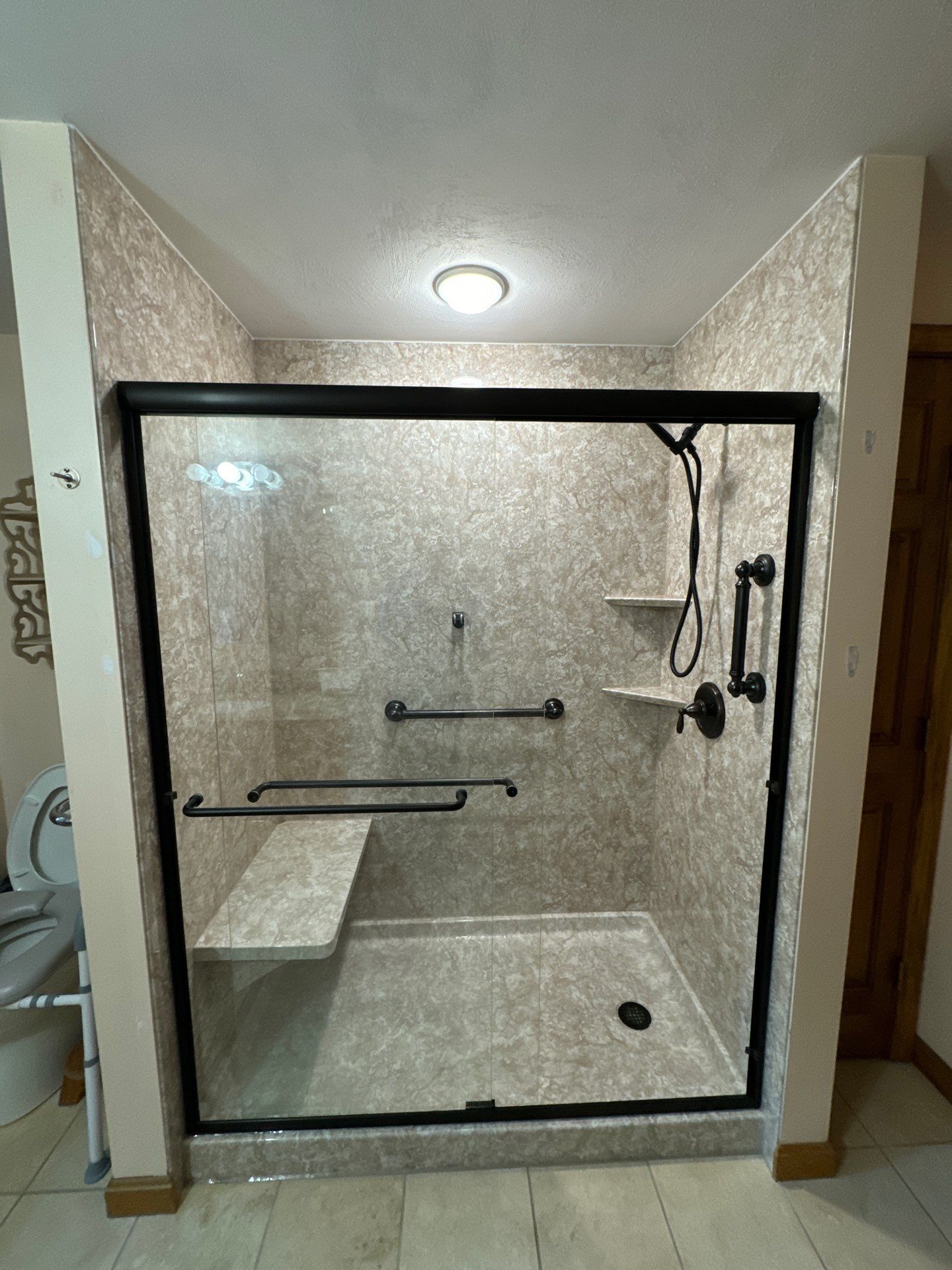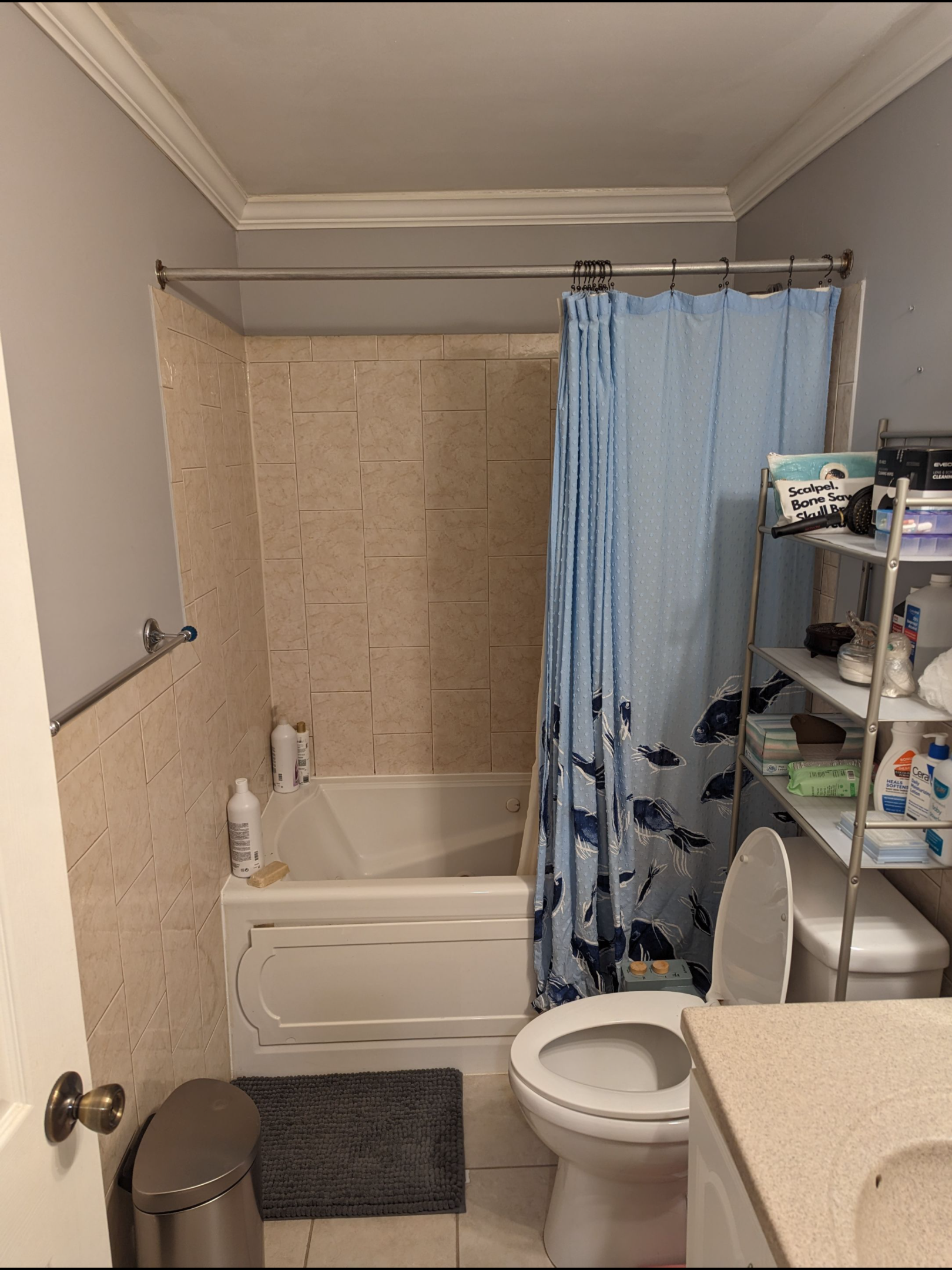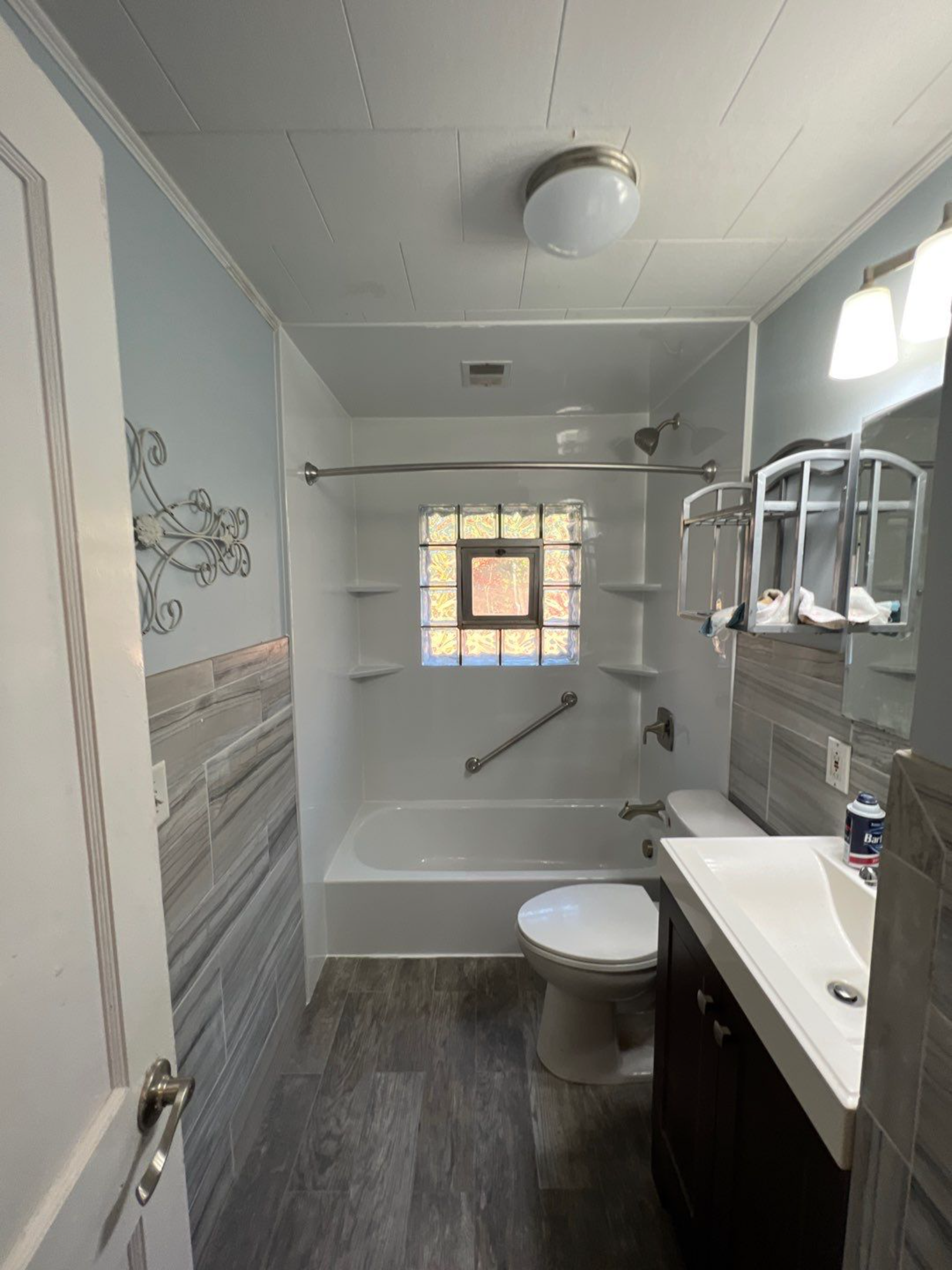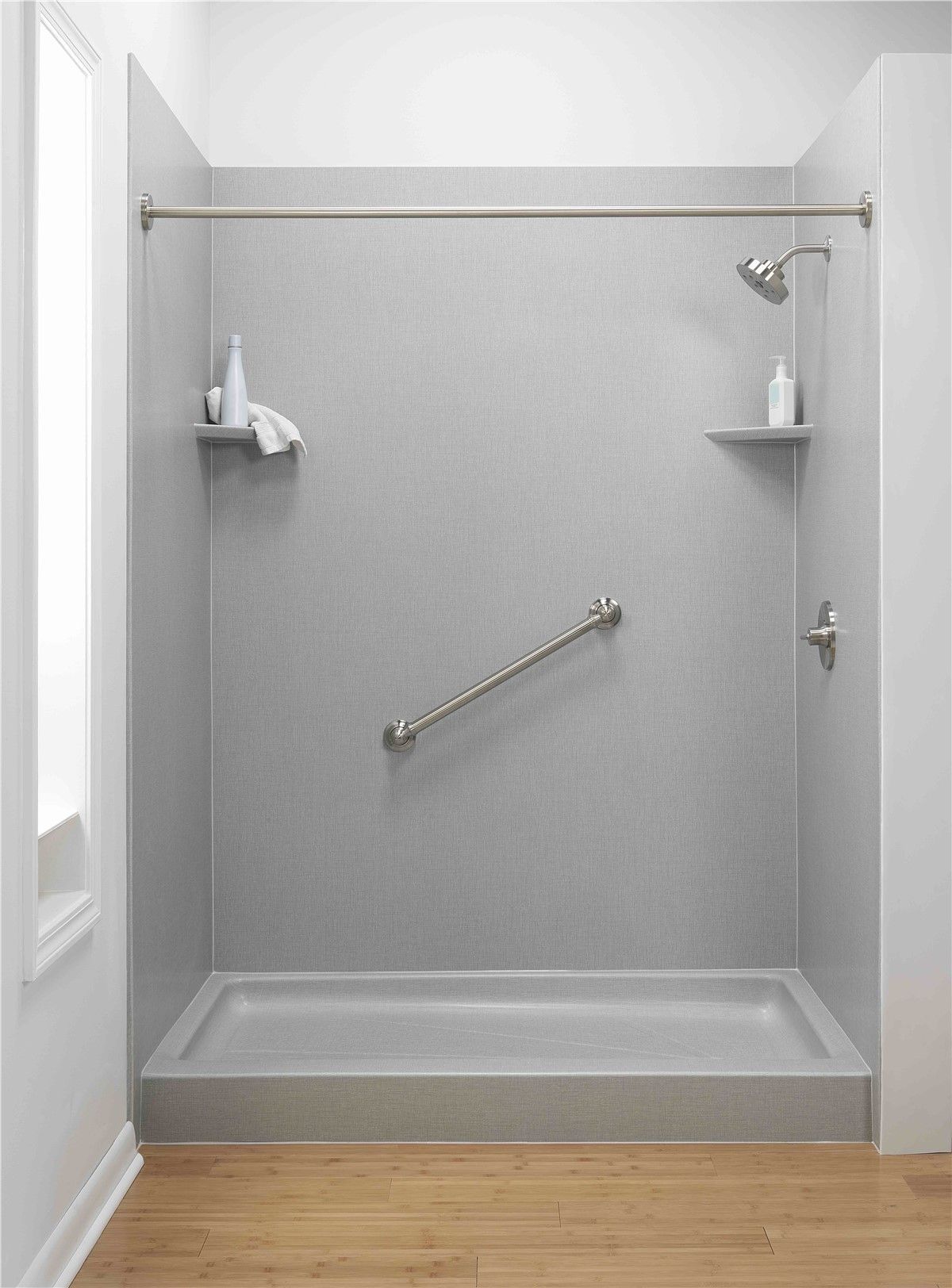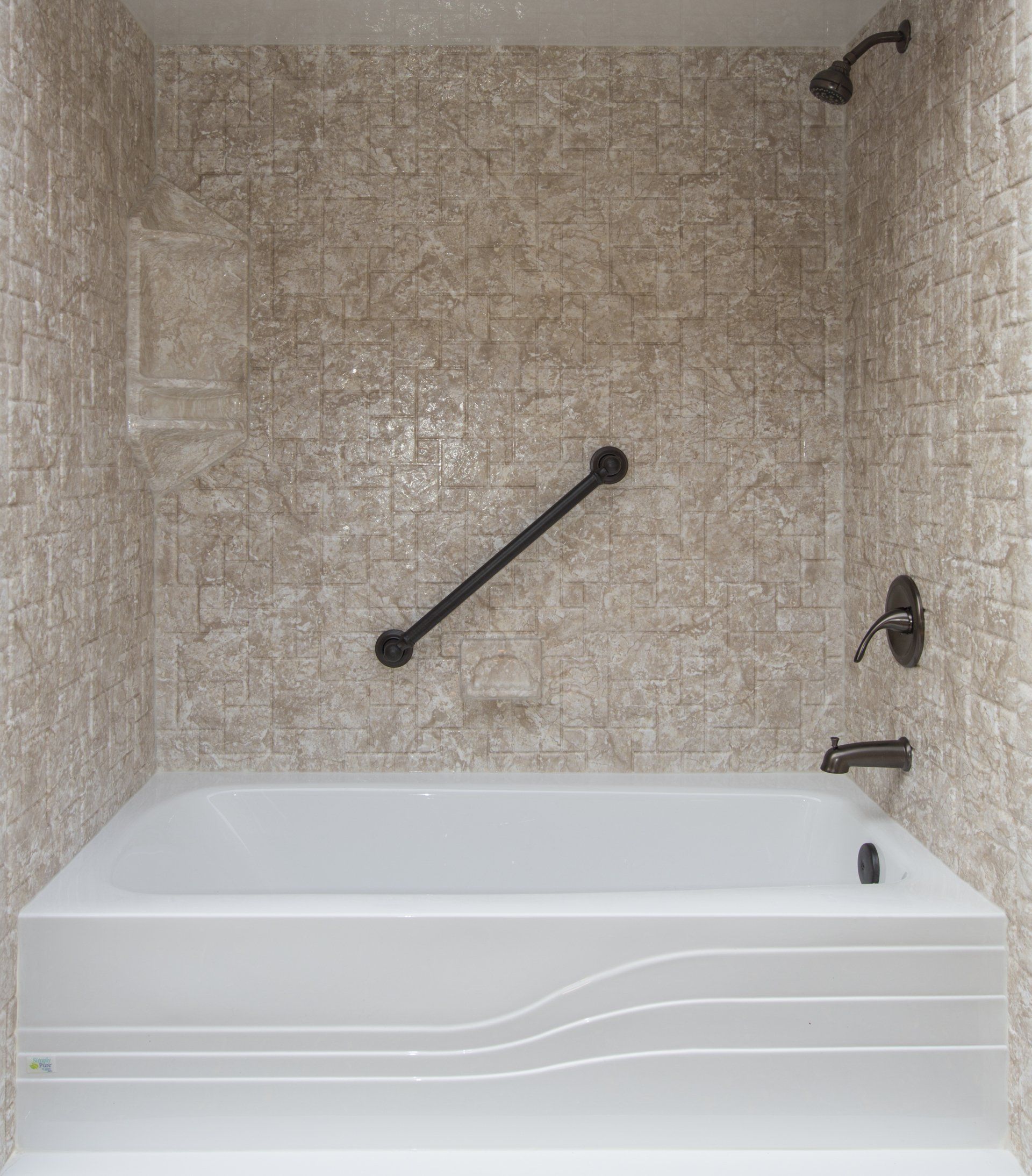Why a Tub to Shower Conversion is Perfect for Small Bathrooms in New Hampshire
In the quest for more spacious and accessible home environments, one significant change homeowners in New Hampshire are considering is converting their traditional bathtubs into modern showers. This alteration is especially pertinent in homes where bathroom space is at a premium. A tub to shower conversion can not only amplify the functionality of a small bathroom but also enhance its aesthetic appeal. This blog post will explore the myriad benefits of this conversion for small bathrooms, address common questions, and discuss critical considerations for homeowners in the Granite State.
Benefits of Tub to Shower Conversion in Small Bathrooms
Space Efficiency
One of the most compelling reasons to switch from a tub to a shower is the efficient use of space. Showers occupy less room than bathtubs, which typically helps to create a perception of more space within a small bathroom. This conversion can open up the room, providing more square footage for other uses, such as additional storage solutions or more extensive counter space. For small bathrooms in New Hampshire homes, where every inch counts, this can be a significant improvement.
Accessibility
Showers offer superior accessibility compared to tubs. They are particularly advantageous for the elderly, those with mobility issues, or families with young children. A walk-in shower eliminates the need to step over a high tub wall, reducing the risk of falls and injuries. This feature is increasingly important for homeowners thinking about future needs and aging in place.
Aesthetic and Design Flexibility
Converting a tub to a shower opens up numerous possibilities for redesigning the space. Showers can be customized in myriad ways, from the choice of tiling to the design of enclosures and the inclusion of luxury features like multiple showerheads or steam functions. This flexibility allows homeowners to create a bathroom that not only maximizes space but also aligns with modern design trends, making the bathroom a highlight of the home.
Increased Property Value
A bathroom remodel, including a tub to shower conversion, can potentially increase a home’s resale value. Modern, accessible showers are often more appealing to prospective buyers than old-fashioned tubs, especially in smaller bathrooms where space is crucial. This appeal can make a home stand out in the competitive New Hampshire real estate market.
Common Questions
What is a tub to shower conversion?
A tub to shower conversion involves removing a bathtub and replacing it with a shower. This process typically includes new tiling, installation of a shower pan, and sometimes moving plumbing fixtures to accommodate the new design.
How much does a conversion typically cost in New Hampshire?
The cost of converting a tub to a shower can vary widely depending on factors such as the materials used and the complexity of the plumbing adjustments required. Generally, homeowners should expect to spend anywhere from $3,000 to $10,000. Consulting with local contractors can provide a more precise estimate based on specific needs and bathroom configurations.
How long does the conversion process take?
The duration of a tub to shower conversion project can range from a few days to a couple of weeks, depending on the extent of the work and the speed of the workers. It is crucial to have a clear timeline from the contractor to manage expectations and plan for any inconvenience.
Will converting to a shower affect my home’s resale value?
Typically, updating a bathroom with a modern shower can increase a home's appeal and potentially its value, especially if the new shower is designed with accessibility and style in mind.
Are there specific regulations or permits needed in New Hampshire for such conversions?
Yes, most bathroom remodeling projects, including tub to shower conversions, require permits to ensure the work complies with local building codes. Homeowners should consult with local building authorities or hire contractors who can manage the permitting process.
Considerations Before Converting
Before jumping into a conversion project, homeowners should consider several key factors. Assessing the existing plumbing and structural supports is crucial, as these can significantly influence the scope and cost of the project. Selecting durable and appropriate materials for both aesthetic and functional longevity is also essential. Understanding the full scope of the project, including potential disruptions, can help manage expectations and ensure a smooth transition from tub to bath.
Conclusion
A tub to shower conversion can be a smart choice for small bathrooms in New Hampshire, offering benefits from increased space and accessibility to enhanced aesthetics and home value. By carefully planning and considering all aspects of the conversion, homeowners can significantly improve the functionality and style of their bathrooms. For those considering this renovation, consulting with a local expert can provide tailored advice and ensure that the project meets all personal and regulatory requirements.
Blog
